
As the Tuberculosis Regional Eastern European and Central Asian Project (TB-REP) approaches its end in 2018, TB-REP country focal points, national stakeholders, representatives of civil society organizations from project countries and project partners met to wrap up the project and look ahead to its revamped continuation in TB-REP 2.0 grant for 2019-2021: Advancing People-Centered Quality TB Care – From the People Centered Model of TB Care Towards Improving DR-TB Early Detection and Treatment Outcomes.
“TB-REP has been a catalyst for reshaping health systems in countries where urgent reforms were needed and has set the stage for the first platform where voices of TB communities, patients and decision makers reunited to design a new concept on fighting TB”.
“TB-REP brought a significant added value for effective TB control response and achievement of better public health outcomes and it has to be continued”.
These were some of the opinions expressed during the Partners Meeting on Health systems strengthening for sustainable TB care models: From the people-centered model of care towards improving tuberculosis prevention and care outcomes”, held in Copenhagen, Denmark, on 13-14 December. Project partners and country stakeholders involved in project implementation attended the event: people affected by TB, community organizations and civil society organizations (CSOs), representatives of Ministries of Health and national health insurance companies, national TB coordinators, public health professionals, Members of Parliament, from 11 countries from Eastern Europe and central Asia: Armenia, Azerbaijan, Belarus, Georgia, Kazakhstan, Kyrgyzstan, Moldova, Tajikistan, Turkmenistan, Ukraine and Uzbekistan. The event was organized by the Center for Health Policies and Studies (PAS Center) together with WHO Regional Office for Euro (WHO/Europe).
At the meeting partners took stock of the TB-REP, by sharing key areas of progress and challenges and formulating lessons learned; learning from existing country experiences and good practices catalyzed by TB-REP; getting impetus to accelerate implementation of the people-centered model of care (PCMC) in their own country contexts; and getting familiar with the purpose, structure and key content of TB-REP 2.0 grant. During these two days, country participants shared knowledge and experience gained during three years TB-REP project during panel discussions covering progress in implementing PCMC and health finance solutions to support its implementation.
In a demonstration of paradigm shift towards model centered on people, the event started with a panel of community representatives and civil society partners in countries presenting their key achievements, facilitated by TB Europe Coalition (TBEC). This was then followed by the official opening by the WHO/Europe, the Stop TB Partnership, the PAS Center, TBEC and Safar Naimov, a TB survivor and representative of TB People, followed by panel discussions involving project partners, government representatives.
Belarus, Kazakhstan and Kyrgyzstan have shared their experience in reducing expenditures on TB inpatient care and reallocating money to outpatient care providers and incentives and support for patients. In Belarus, for example, TB REP has been central to the changes that are ongoing in country. The country has used a step-by-step process planning the process, launching a pilot in Brest and scaling up to national level starting January 2019. The pilot experience allowed reducing beds by almost 50% by the end of 2018, increasing quality of outpatient care management and as a result, increasing the TB treatment outcomes.
In Kazakhstan authorities managed leading to more rational hospital use, where in just few years the number of hospital admissions for sensitive TB cases has decreased from 84% in 2015 to 60% in 2017, the number of beds has been reduced from 11,848 in 2014 to 7,297 beds in 2017 and 7,181 in 2018. These savings remained for TB sector and allowed to procure the needed medications, increase budget for psychosocial support, while a part of that amount was reallocated to engage health care professionals in the outpatient sector.
Ukraine has shared its progress in developing its National TB Strategy aligned to the blueprint and to be approved by the end of 2018. In the meantime, as part of TB-REP project, the Social movement “Ukrainians against tuberculosis” has worked on two cross-sectoral action plans for 18 institutions and departments at the level of administrations, where the actions are provided for each structure. It took them three years and even though it took a long time it's worth the effort.
As the new paradigm of a people-centered model of TB prevention and care approach requires shift to outpatient and community level, increased focus is needed towards human resources. The topic raised a lot of discussions about what must be done to retain health professionals in health systems. Some counties that face transition from the Global Fund talked about their struggles to cover the needs of TB patients, to which is added ageing of health care workers. Presentation of regulatory framework self-assessment tool raised increased interest of countries in its use to institutionalize the new model of care. The actors involved in working directly in TB-REP project discussed the further opportunities and solutions regarding health financing, in context of sustainability and transition from donor support.
The last session of the event focused on presenting the concept, the priorities and needs for the TB-REP 2.0: Next and New and gave the opportunity for all implementing partners, the PAS Center, WHO/Europe, TB Europe Coalition, TB People and the Global TB Caucus to present future action plans and for countries to express their expectations for the new project.
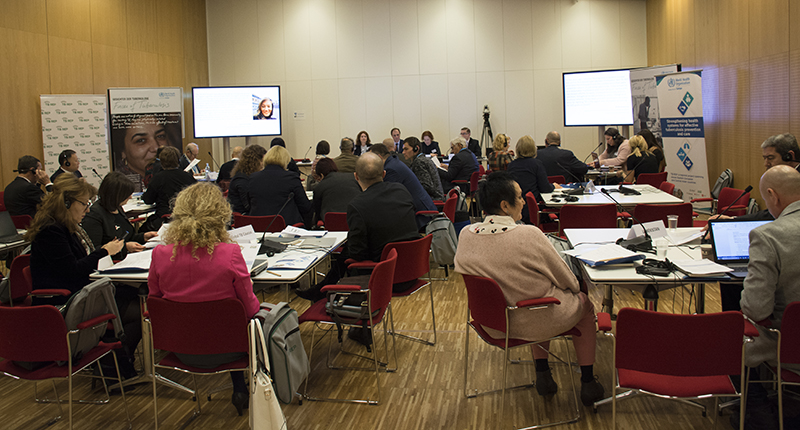
What is TB-REP
TB-REP is a multipartner project covering 11 countries: Armenia, Azerbaijan, Belarus, Georgia, Kazakhstan, Kyrgyzstan, Republic of Moldova, Tajikistan, Turkmenistan, Ukraine and Uzbekistan. It aims to prevent TB and drug-resistant TB, and to improve TB treatment outcomes by increasing political commitment and accelerating adoption of people-centered models of care. TB REP is led by the Centre for Health Policies and Studies (PAS Centre, Moldova) as the principal recipient and in partnership with the WHO/Europe, TB Europe Coalition and technical partners involved in blueprint development, funded by the Global Fund.
The progress to date shows that political commitment and technical support translated into specific explicit national policies for integrating PCMC in all 11 countries, increased national TB budgets and mechanisms to redirect funding towards outpatient care and notable progress in decreasing admission and average length of stay for new TB and MDR-TB cases.
An independent mid-term review conducted in early 2018 found the project strategic, timely, catalytic and complementary to national strategic plans and Global Fund country grants. The major finding is that efficiency gains due to decreased hospitalization amounted USD 30 million or 17% of TB funding in 11 countries and that the project was set to achieve most of its intended outcomes. All countries were subject for remote interviews and Belarus and Georgia were selected for selected for in-depth country level assessment. TB-REP was very positively assessed by the countries involved.
The mid-term review also highlighted its added value – this being the first grant to have a focused health system approach to improving TB response and the first to bring the voice of TB communities at the core of the health system transformation process, fostering knowledge and experience sharing among countries in the eastern European and central Asia region using regional and country level platforms. It also was found to fill the gap in technical support for health system strengthening through provision of customized, demand-driven highly technical expertise to project-targeted countries. Moreover, assessors found that implementation strategies, inputs and tools were relevant to achieve the stated objectives, the project was well aligned with international frameworks and strategies and addressing needs and demands of beneficiary countries, was coherent and complementary to National Strategy Plans and to the Global Fund country grants. In countries where health system changes have been initiated prior to TB-REP with external support, the project expanded on these pilot projects and capitalizes on the results attained. As the donor funding wipes up in the region, the TB-REP importance becomes even stronger, therefore the mid-term review recommended to ensure project continuation to support initiated health system reforms.
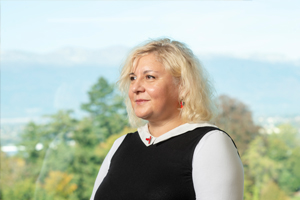 Lucica Dițiu, Director, Stop TB Partnership:
Lucica Dițiu, Director, Stop TB Partnership:
„TB REP is contributing to the work of country programmes, civil society and communities, technical partners and donors towards an acceleration of the TB response in the European region in order to End TB. Looking forward, these efforts should be translated into a decrease into the TB epidemic, further strengthening the political engagement and expanding the people centered TB response. Stop TB Partnership will support TB REP and all our partners at country and regional level to make the world TB free”.
 Hans Kluge, Director of the Division of Health Systems and Public Health WHO Regional Office for Europe:
Hans Kluge, Director of the Division of Health Systems and Public Health WHO Regional Office for Europe:
“TB-REP is about reorienting health services, to move to new model of care, to re-meet the expectations of the people, and in the same time to use in the best way we can the few resources we have in order to work efficiently. In my view TB-REP is a forum for exchanging experience. That is what we are doing for three years, transforming the health services to much more efficient ones. All of you had made a fantastic job, I am very proud of the work you have done. Investing in health is not expensive. Investing in health systems is investing in a well-being society and in economic development. There is no country that can be prosperous without a healthy workforce.
Ending TB in your countries is still challenging what’s why your hard work is very appreciative. Transformation always takes time. You have now to consolidate and accelerate your work. What you do is changing management, changing management is managing people, managing people is nothing else than managing emotions. The first question you have to be able to answer to the people is what are you developing for them, no one is in lost from moving people to community care”.
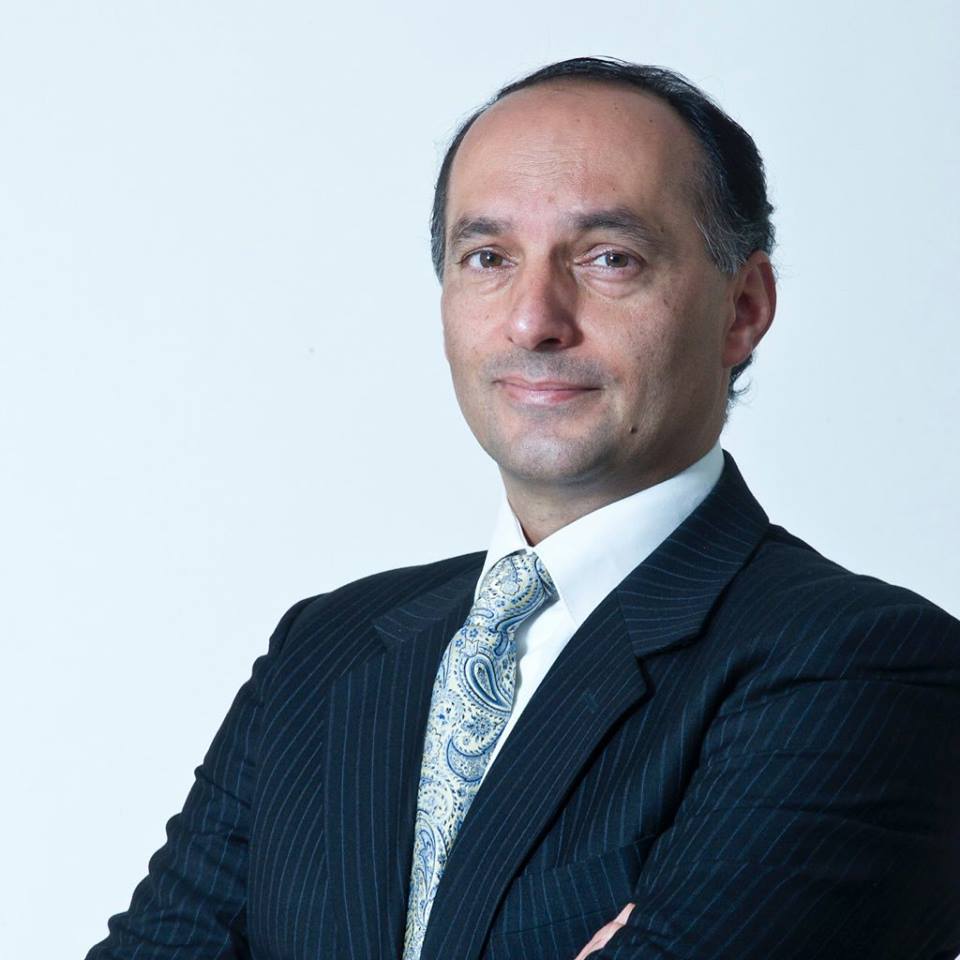 Dr Masoud Dara, Coordinator Communicable Diseases, Division of Health Emergencies & Communicable Diseases, WHO, Regional Office for Europe:
Dr Masoud Dara, Coordinator Communicable Diseases, Division of Health Emergencies & Communicable Diseases, WHO, Regional Office for Europe:
TB-REP has been instrumental in supporting countries pursue the very much needed reforms of their services and adapting the financing mechanism for more effective TB prevention and care”.
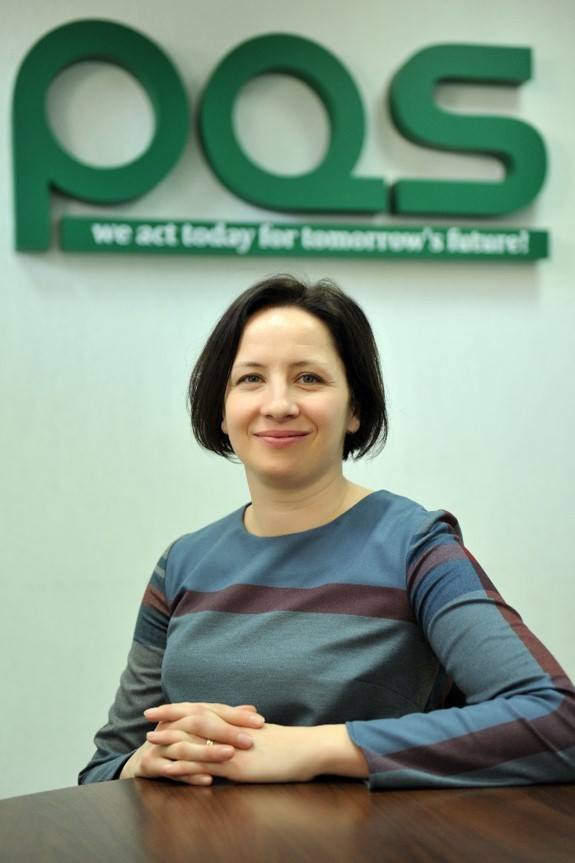 Stela Bivol, Center PAS Director:
Stela Bivol, Center PAS Director:
With support from the Global Fund, we embarked on an off-beaten path to bring together a team of eastern European implementers, civil society groups, communities, people with TB, national TB programs, Ministries of Health, Ministries of Finance and Health Insurance Funds, Members of Parliament with international and western organizations: WHO Regional Office for Europe and country offices in 11 countries, the Stop TB Partnership, TB Europe Coalition, London School of Hygiene and Tropical Medicine, London School of Economics and Political Science, European Respiratory Society, the Global TB Caucus, to increase political will to change the model of care and to provide the tools with which to make the change.
Did we make difference? I strongly believe we did: the biggest difference is change in mindset. I see a huge difference when I speak to many decision-makers now compared to first year of the project and many more converted professionals that form the critical mass needed to bring about change. Many countries have already translated the converted thinking into new policies, roadmaps, pilots, national scale-up of pilots, new provider payment arrangements and register a decrease in hospitalization rates and increased outpatient care. Others are still getting there. The reason we do this is to get many more people affected by TB to have a voice and a choice in demanding quality care and better services. I am proud and thankful to our strong team and great partners and together we can make further difference in the years to come.
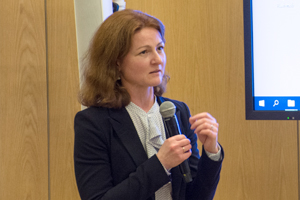 Svetlana Nicolaescu, TB REP Coordinator PAS Center:
Svetlana Nicolaescu, TB REP Coordinator PAS Center:
TB-REP has changed the way we look at, discuss about and, the most important, act on TB. The Project was instrumental in conceptualizing the models that can reshape health systems in EECA region for better TB outcomes and provided support to countries in taking practical steps towards people-centered TB care. Three years had passed since TB-REP project started. A great work has been done by all partners and countries and this project has instigated important changes in the region. Most of the countries took the road towards transforming their health systems for better TB care. With the firm conviction that this work needs to continue, we are looking forward to moving to another level and starting the TB-REP 2.0, which will launch in January 2019. The TB-REP 2.0 project will cover 11 countries from the EECA region, that will be supported by the coalition of strong partners to improve the quality of TB prevention and treatment. We will continue to focus both on strengthening health systems and engaging and empowering communities, with a special emphasis on the quality of TB care.